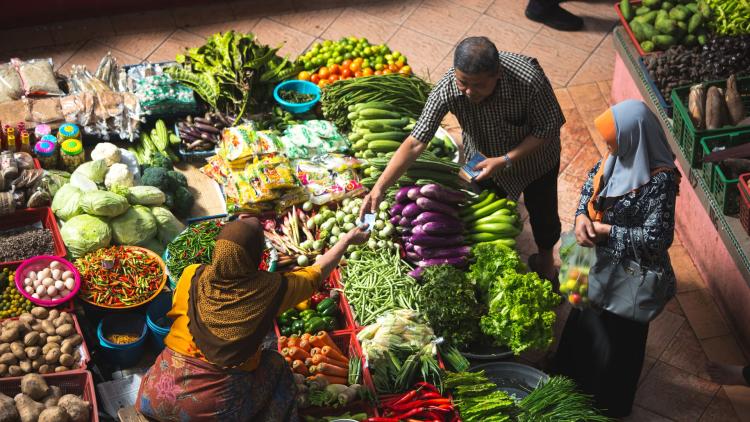Feminist political economy is essential for understanding inequality


Dr Sara Stevano advocates for the integration of feminist approaches into mainstream economic discourse, illuminating how gender, class, and race intersect within the fabric of global capitalism.
Feminist political economy is essential for understanding inequality. Although feminist approaches are often seen as specialised fields for those interested in gender issues, they should be acknowledged as fundamental to our understanding of the economy.
This is the key message of the book 'Feminist Political Economy: A Global Perspective', which I co-authored with Prof Sara Cantillon (Glasgow Caledonian University) and Dr Odile Mackett (University of the Witwatersrand). We wanted to systematise the extensive knowledge in feminist political economy. The process was challenging due to the limited availability of current textbooks, but we created it as a political intervention to establish the foundational nature of feminist knowledge.
The inequality blind spot in economics
In recent decades, global elites have become increasingly wealthy, while those at the bottom have been left behind. This situation is unsustainable from economic, social, and political perspectives.
A global division of labour, established through colonialism, continues to create differentiation among labouring classes through gendered and racialized processes.
What is striking is that until relatively recently, inequality was not considered a problem for the economy. In some cases, it was even seen as beneficial for economic growth or as a temporary issue that would resolve itself with more growth. Although not all economists agreed, other perspectives that highlighted how the contemporary economy is built on inequality were marginalised over time. The good news is that we are now in a new era of thinking about inequality, where we recognise it as a problem.
Gender inequality cannot be understood in isolation
From a feminist perspective, the mainstream recognition that income or wealth inequality is a problem is not enough. Feminists have long fought to bring attention to gender inequalities. In economics, feminists have criticized both neoclassical thinkers who saw an economy without conflict and Marxist thinkers who saw an economy solely based on class conflict.
For many feminists, gender inequality cannot be understood in isolation. Marxist feminist traditions have examined the interaction of gender and class, while Black feminisms have emphasised the importance of race. Angela Davis' book "Women, Race and Class" is a significant work in this regard.
Contemporary feminist political economy builds on these lines of inquiry and expands them in the context of globalized and financialized capitalism. It demonstrates how a global division of labour, established through colonialism, continues to create differentiation among labouring classes through gendered and racialized processes.
From social reproduction feminisms, which aim to understand oppression and exploitation holistically, to the feminist strike, which challenges the invisibility of various forms of work, to the struggles for survival in the Global South, which expose the precarity of life for growing surplus populations, and the ongoing importance of anticolonial struggles.
What feminist political economy offers
Feminist political economy provides the tools to analyse how people are integrated into production and excluded from it, as well as how they are allocated to reproduction, which is the root cause of inequality.
It goes beyond the state and market, encompassing the household, family, community, and social reproduction. It also examines how gender inequalities are intertwined with class, race, and other relations of power, demonstrating that they are crucial to contemporary capitalism. The field employs various methodological approaches to capture inequalities at different scales.
SOAS is one of the few universities offering students of Economics dedicated modules in feminist economics.
A global perspective is essential because feminist political economy addresses inequalities that operate at multiple levels, from everyday life to labour markets and the global economy. The book draws on knowledge and case studies from the Global South and North.
It is time to integrate feminist thinking into the study of inequality, not only as a separate body of knowledge, but as a central component of socio-economic theorisation. SOAS is one of the few universities offering students of Economics dedicated modules in feminist economics as well as the integration of feminist approaches to economics in both core and non-core modules.
About the author
Dr Sara Stevano is a development and feminist political economist and a Senior Lecturer in Economics at SOAS University of London.



